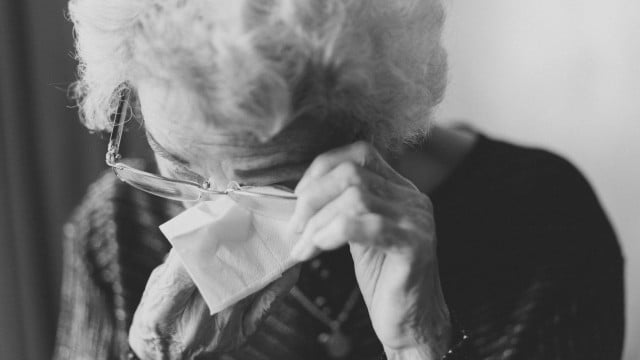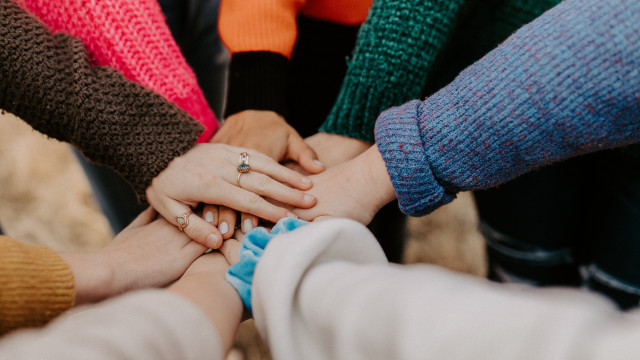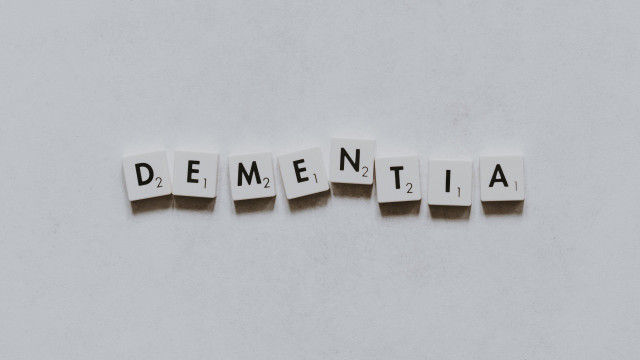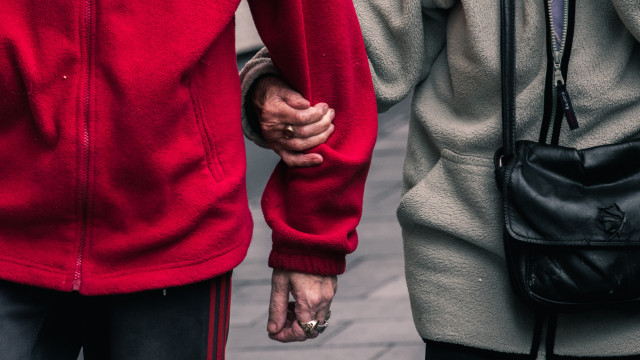
Around 1.6 million Germans suffer from dementia and the number is growing. Behind every sick person are family and friends, who often look after their loved ones in the private sphere at home. In addition to the physical strain, the relatives are often also exposed to great mental stress. We talk to the Desideria Care e. V. in an interview.
According to the German Alzheimer Society e. V around 1.6 million people with dementia live in Germany. 300,000 people become ill every year. Around 60 percent of those affected suffer from dementia of the Alzheimer’s type. According to estimates the number of people suffering from dementia by 2050 to 2.4 to 2.8 million people climb. as main antidote will the preventionthe therapy and the research named. Approximately two-thirdsof people suffering from some form of dementia is cared for at home.

Help with dementia for those affected and their families
Dementia threatens to become the second leading cause of death worldwide. But next to the sick the relatives also suffer greatly. the care at home contains partially high physical stress and also great mental pressure comes to the caregivers.
We speak in interview on the subject of dementia with the Association Desideria Care e. V. Desideria Care develops and promotes services for people with dementia and their families. The aim is to bring about a change in thinking in society and to ensure a better quality of life for the families concerned.

Weltverbesserer.de: What exactly is Desideria Care?
Desideria Care e. v.: “With Desideria Care engage we us for a dementia-friendly society. 1.6 million people in Germany are currently suffering from dementia, two thirds of whom are cared for at home by their relatives. we support and strengthen relatives throughout Germany with innovative offers and bold concepts. A diagnosis not only has a direct effect on the patient, but also has an enormous impact influence on family members. The consequences are immense: Overwhelm, loneliness, physical complaints, burnout, addiction, depression.
We need an open society that is willing to value the important contribution made by carers of people with dementia. Because they are the nation’s free nursing service.”

What can the course and stages of dementia look like?
Desideria Care e. v.: “In general dementia progresses in three phases. The transition between the mild, moderately severe and severe phase is fluid, which is why it is often difficult to classify it. the Most forms of dementia cannot be cured and characterized by a progressive course leading to death.”
What can you do when you are diagnosed with dementia?
Desideria Care e. v.: “A first important step is, yourself full about the disease too inform and Consulting offers to perceive We always encourage our clients to establish a care network at an early stageto spread the challenges across multiple shoulders. But also them emotional stress should not be underestimated.
A diagnosis of dementia triggers a wide variety of feelings in both the patient and their relatives: fear, powerlessness, sadness and much more. He can help exchange with other stakeholders or the individual accompaniment by a family coach.”

Can you tell us something about the everyday life of those affected and their relatives?
Desideria Care e. v.: “It’s actually working out very different for everyone. Depending on the phase of the disease, a wide variety of challenges arise. However, what is important at each stage is not to reduce the patients to their dementia. They want to be seen as themselves and not just as patients.”
What offers does Desideria Care offer?
Desideria Care e. v.: “knowledge and exchange are from our point of view of central importance. Therefore we offer the free family seminars “EduKation Dementia®“ on, both online and in person in Munich.
The seminars help relatives to better understand the disease and its impact on everyday life and to learn how to deal with it. Afterwards, our relatives groups offer the participants of the seminars the opportunity to meet each other once a month within a moderated environment share with other family members.
We offer families who want individual support in a difficult situation family coaching on. With our Photo competition “See dementia anew” and the Podcast “Living, loving, caring – the podcast on dementia and family” we want to increase public awareness of the topic of dementia and give relatives a voice.”

Who is your offer of help aimed at?
Desideria Care e. v.: “We address all relatives of people with dementia in German-speaking countries.”
Are there different offers for children, young people and adults?
Desideria Care e. v.: “Yes, for young relatives, the so-called Young Carersthere is “Dementia Buddies” offerwith which we teenagers and young adults aged 16-26 years speak to.”
Which people take advantage of your offers?
Desideria Care e. v.: “We are for the whole family there, both the partners of the sick and their daughters, sons and grandchildren. For the interested in online offers itself especially the daughters and sons, but also caring partners have become more and more open to digital events and support offers due to the pandemic. Especially when the family is far away, the digital space offers the opportunity to deal with the topic together.”

What is Desideria Care’s goal for the future?
Desideria Care e. v.: “We want one bring about a change in consciousness in society. Dementia can no longer be taboo! Human dignity, maintaining quality of life and participation in social life are our declared goals. This requires acceptance, confidence, solution orientation, creativity and the will to shape the future.”
More information about Desideria Care e. V
Founded became Desideria Care 2017 by Desirée von Bohlen and Halbach. Through her voluntary work in the Malteser day care center for people with dementia in Munich, she was repeatedly confronted with the situation of the relatives. This resulted in the desire to engage in emotional support and counseling for relatives. Over the years, the team and our network grew. If you use Desideria Care e. V. and want to get to know the offers better, visit the website.

seek and find help
Those who worry often feel left alone. This is where offers such as the family hotline from the Techniker Krankenkasse or the TK crisis chat for children and young people come into play. Experts are available to members here if they have any questions. Anyone who is particularly worried about dementia or is looking for help and information can find it, for example, on the Alzheimer’s telephone. The nationwide offer is supplemented by advice centers. Those affected can also get advice and help from their health insurance companies.
Find out more about the #world-improvers
More #maketheworld better:
- Do-gooder – a swear word that isn’t one
- Digital health: A conversation with Tobias Krick
- Family in numbers: What the statistics reveal
You might also be interested in these articles
-
Pinkwashing: That’s behind it
-
Eureka: How is change possible? A conversation with Richard David Precht (F. 1)
-
Gender Data Gap: These 5 examples show that our world is not made for women
-
Spices against osteoarthritis: How you can relieve joint pain with spices
-
Relieve tension: This is how you get rid of pain in your shoulder, neck and back
-
Rosehip powder: effect, side effects and application
-
Talking helps! A conversation about suicide and why it should be talked about
-
Home office advantages: How to work sustainably from home
-
Vipassana Meditation: Instructions for more insight